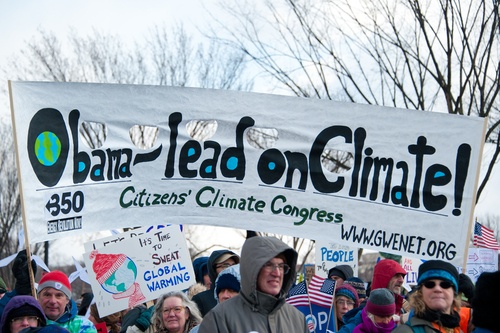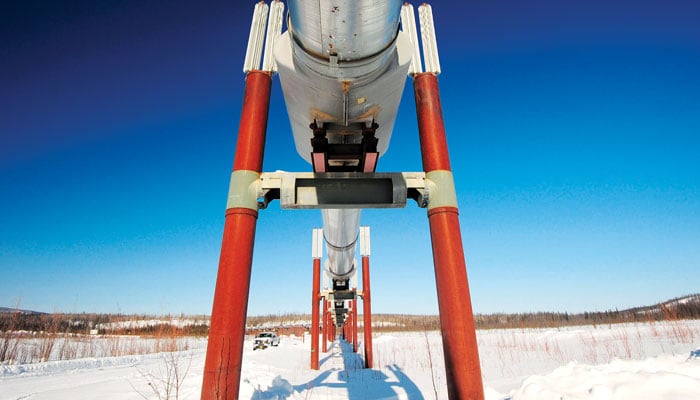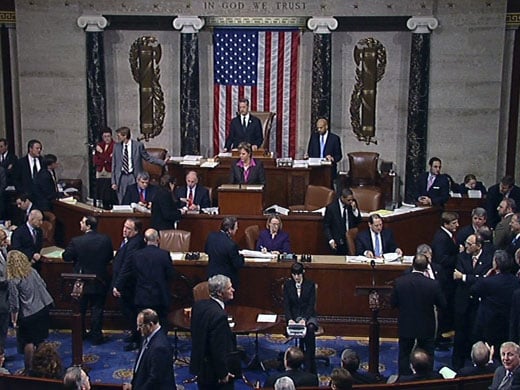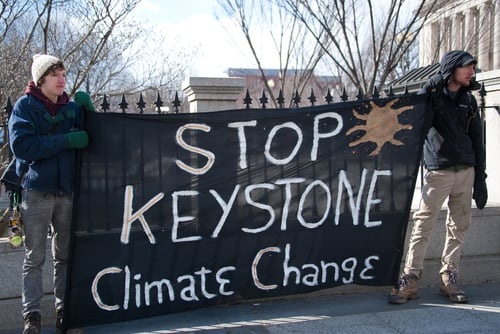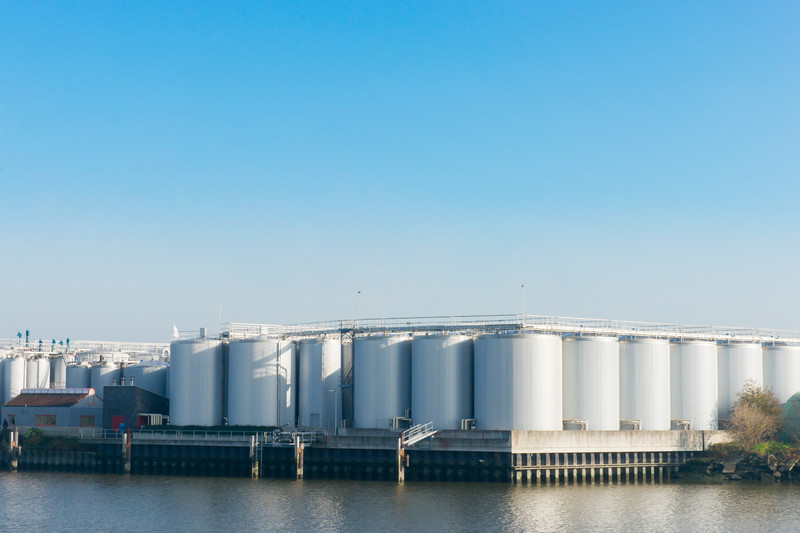The new Administration is off to a running start, as Wednesday saw a flurry of Executive Orders come out, many of which deal with climate change, and the oil & gas industry. There are a lot of items, and they are all pretty detailed with substantial backstory, but we are going to try and briefly touch on the three major items relevant to the industry and quickly go over the main points (or, try to at least!)
ESG & Industry Updates
New Administration, New Focus - Executive Orders & Industry Impacts
Posted by Kelly Burke on Jan 28, 2021 5:59:19 PM
Topics: Keystone XL, Climate Change, clean power plan, Biden Administration, paris accord
As of this morning, the Obama Administration has officially rejected the Keystone XL Pipeline on the basis of Climate Change concerns. As we discussed with the TransCanada "pause petition" delivered Monday, many had thought the President would “kick the can” to the next president and decline to rule on the proposal before the end of his term.
Topics: Keystone XL
TransCanada/White House Standoff Begins Ahead of Climate Change Summit
Posted by Ed Burke on Nov 4, 2015 1:24:28 PM
In a surprise move Monday, TransCanada issued a request to the U.S. State Department that they pause the ongoing review of the project until the legal challenges in Nebraska are settled. (Interestingly and somewhat ironically, this is the exact same reason Secretary of State John Kerry gave for why the review was taking so long when asked last year.)
Topics: Keystone XL, TransCanada, Climate Change, obama
Today, the bill to approve the construction of the the Keystone XL pipeline hits the Senate, after the House approved Cassidy's legislation by 252-161 on Friday.
Topics: Energy Independence, Keystone XL, Energy Infrastructure, TransCanada, senate
Midterms 2014: What Will the Energy Agenda Look Like Now?
Posted by Ed Burke on Nov 6, 2014 8:00:00 AM
Topics: US Crude Exports, EPA, Keystone XL, Carbon Emissions, Election Results
Pipeline Stubbornness - Canada's "Work Around" & US Environmental Harm
Posted by Ed Burke on Oct 17, 2014 12:00:00 PM
Topics: Keystone XL, TransCanada, shale, railcar regulations, irving oil, environment

Tuesday the House passed bipartisan legislation to speed up the approval process for cross-border energy projects (ie Keystone XL), despite a promised veto from President Obama. The bill is known as the “North American Energy Infrastructure Act”, featuring 12 Republican and 8 Democratic co-sponsors. If it passed the Senate, it would establish by law that projects be granted or denied approval within 120 days of the Environmental Impact Study, and more significantly, it would remove the need for Presidential Approval.
Technically the bill doesn’t apply to Keystone XL, because the applications and environmental impact studies are already completed for that proposed project. However, that’s obviously the most glaring example of the need to speed up the process, and probably the impetus for the bill’s submission in the first place. In theory, TransCanada could resubmit their application and be subject to the speedier process. (A motion to prevent TransCanada from resubmitting should the bill pass was handily shut down by a wide margin.)
Topics: Energy Independence, Keystone XL, Energy Infrastructure, Congress, TransCanada, Environmental Impact Study
Energy Security, Not Independence, Should Be The Goal
Posted by Ed Burke on Mar 27, 2014 12:36:40 PM
Topics: Energy Independence, US Crude Exports, US Energy Boom, Keystone XL, russia, ukraine,
Main energy topics in the headlines for 2014 include the Crude Export Ban, the Keystone Pipeline, the Climate Change Action Task Force, RFS Volumes, and an expected final ruling on the Tier III mandate from the EPA.
Topics: Energy Independence, Biodiesel Tax Credit, EPA Mandate, US Crude Exports, Cellulosic Ethanol, Keystone XL, RFS, obama
Mayflower Arkansas Highlights Keystone XL Environmental Concerns
Posted by Ed Burke on Jul 30, 2013 1:33:00 PM
It's not often that specific Energy Policy issues are topics for discussion at the average American dinner table, but a notable exception to this is the Keystone Pipeline XL. From the nationally televised Presidential primaries and debates of 2012 to dinner tables around the nation, people are divided on the issue and they are definitely talking about it.
Topics: Mayflower, Pegasus Pipeline, Keystone XL
Subscribe to Email Updates
Recent Posts
Posts by Topic
- Carbon Emissions (42)
- Climate Change (33)
- renewable energy (32)
- Oil & Energy Magazine (27)
- EPA (24)
- Massachusetts (22)
- Biden Administration (18)
- decarbonization (15)
- Biodiesel (12)
- natural gas (12)
- EPA Mandate (11)
- RFS (11)
- Solar (11)
- Biofuels (10)
- Keystone XL (10)
- methane (10)
- Clean Energy (9)
- offshore wind (9)
- Energy Independence (8)
- Energy Infrastructure (8)
- Safety (8)
- Biodiesel Tax Credit (7)
- Emissions (7)
- Ethanol (7)
- Trump Administration (7)
- ev (7)
- Cellulosic Ethanol (6)
- EV Charger (6)
- Inflation Reduction Act (6)
- RINs (6)
- environmental justice (6)
- Fracking (5)
- Technology (5)
- US Crude Exports (5)
- Utility Rates (5)
- electric vehicles (5)
- maine (5)
- tesla (5)
- ACT (4)
- Mass DOER (4)
- TransCanada (4)
- battery (4)
- fuel management (4)
- massachusetts biodiesel mandate (4)
- obama (4)
- paris accord (4)
- remote tank monitoring (4)
- CARB (3)
- CRUDE (3)
- Carbon Capture (3)
- Clean Fuel Production Credit (3)
- E85 (3)
- Emergency Fuel (3)
- Massachusetts Clean Cities (3)
- Waste Feedstock Biodiesel (3)
- china (3)
- clean power plan (3)
- electricity rates (3)
- net-zero (3)
- renewable diesel (3)
- solid state battery (3)
- AI (2)
- AVs (2)
- Bioheat (2)
- Commodities (2)
- Congress (2)
- Customer Service (2)
- DOT (2)
- EIA (2)
- Emergency Generator Program (2)
- HFCs (2)
- Hurricane Sandy (2)
- IMO 2020 (2)
- MIT (2)
- Marinas (2)
- New York (2)
- Refinery Closures (2)
- Safe Driving Policy (2)
- TCI (2)
- US Energy Boom (2)
- ZEV (2)
- autonomous vehicles (2)
- clean air act (2)
- clean heat standard (2)
- coal (2)
- driver shortage (2)
- emergency response (2)
- environment (2)
- ferc (2)
- geothermal (2)
- hydro-electric (2)
- hydrogen (2)
- national grid (2)
- net metering (2)
- power plant emissions (2)
- power plants (2)
- railcar regulations (2)
- tariff (2)
- vineyard wind (2)
- API (1)
- Air conditioning (1)
- Baiji Refinery (1)
- Blend Wall (1)
- Brent Crude (1)
- Brent vs WTI (1)
- CFCs (1)
- Cell Phone Policy (1)
- Clean Water Act (1)
- DEF (1)
- Election Results (1)
- Electrical Grid (1)
- Energy Efficiency (1)
- Environmental Impact Study (1)
- Environmentally Friendly Products (1)
- Ethanol Tax Credit (1)
- FEMA (1)
- Fiscal Cliff (1)
- Gas Tax (1)
- Gasoline Supply Crunch (1)
- HDVC (1)
- Hazmat (1)
- Heat Tax (1)
- Highway Trust Fund (1)
- Holyoke (1)
- Hybrid (1)
- ISIS (1)
- Iraq (1)
- Kigali Amendment (1)
- MOC (1)
- Market analysis (1)
- Mayflower (1)
- Montreal Protocol (1)
- NORA (1)
- Natural Gas Pipeline Explosion (1)
- New Jersey (1)
- OBB (1)
- Oil Barrel Tax (1)
- PFC (1)
- Pegasus Pipeline (1)
- Propane Autogas (1)
- Stimulus (1)
- Syria (1)
- Tank Truck Safety Training (1)
- Tax Increases (1)
- Tier 3 Gasoline Standard (1)
- Times Square (1)
- VEEP (1)
- Workplace Risk (1)
- agriculture (1)
- algonquin pipeline (1)
- alternative energy (1)
- altwheels (1)
- astm (1)
- bionic leaf (1)
- bitcoin (1)
- boston (1)
- covid-19 (1)
- energy storage (1)
- eversource (1)
- export ban (1)
- fixed pricing (1)
- fuel (1)
- fuel efficiency (1)
- fuel marketers news (1)
- gas leaks (1)
- heating oil (1)
- hurricane harvey (1)
- inflation (1)
- irving oil (1)
- marketing (1)
- nuclear (1)
- online fuel buying (1)
- ozone (1)
- photovoltaic (1)
- pilot program (1)
- pipeline (1)
- propane (1)
- renewable natural gas (1)
- rggi (1)
- russia (1)
- sanctions (1)
- senate (1)
- shale (1)
- social media (1)
- social media for business (1)
- space (1)
- tablets (1)
- tennessee pipeline (1)
- ukraine, (1)
- value added services (1)


